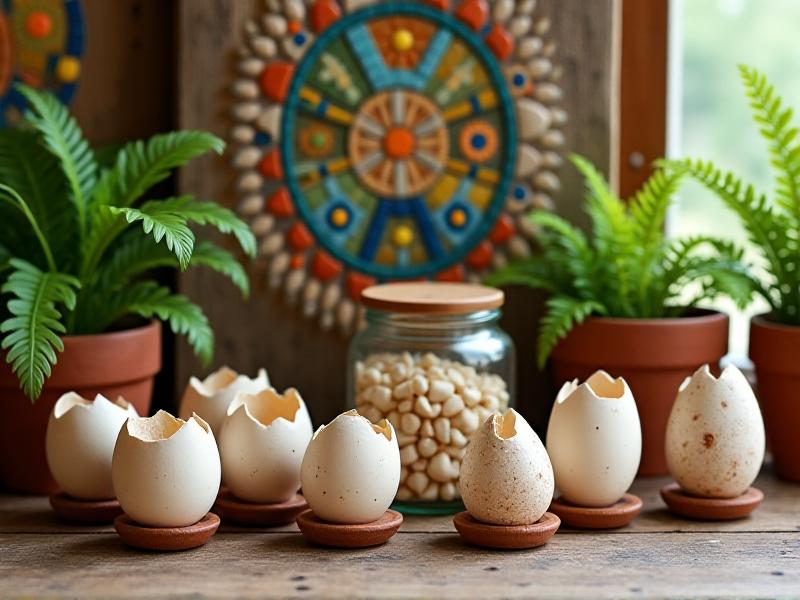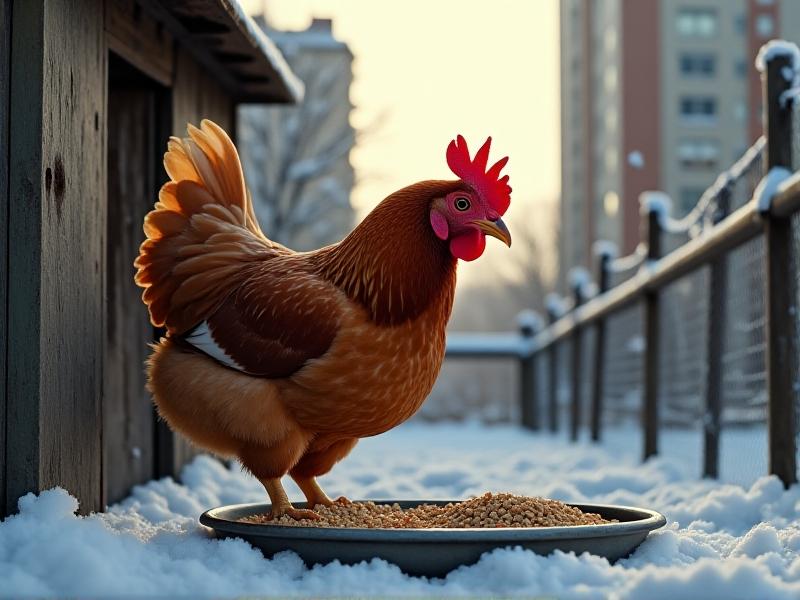Herbal Remedies for Common Urban Chicken Ailments
Understanding Urban Chicken Challenges and Herbal Solutions
Urban chicken-keeping brings unique challenges, from pollution to limited space, which can affect flock health. Herbal remedies offer a natural, accessible way to address common ailments without relying solely on synthetic treatments. By integrating herbs into daily care, urban poultry owners can support their chickens’ resilience while aligning with sustainable practices.
Respiratory Health: Combatting Urban Pollutants
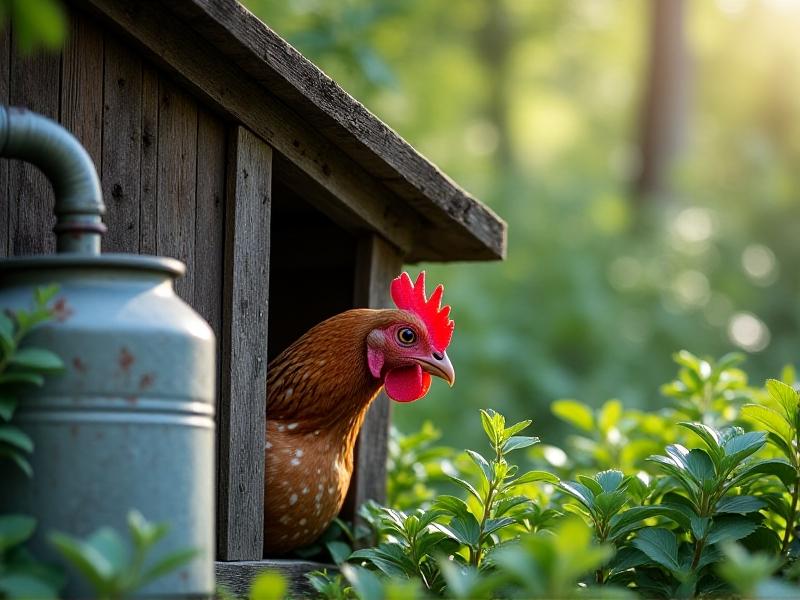
Urban environments often expose chickens to dust, mold, and airborne toxins. Oregano ( Origanum vulgare ) contains thymol and carvacrol, compounds with antimicrobial properties. Steep dried oregano in hot water to create a tea, then mix it into drinking water weekly. Thyme ( Thymus vulgaris ) serves as a bronchodilator—hang fresh bundles in the coop for hens to peck. Avoid eucalyptus essential oils, but dried leaves in nesting boxes can act as a mild decongestant.
Digestive Troubles: Soothing Urban Stressors
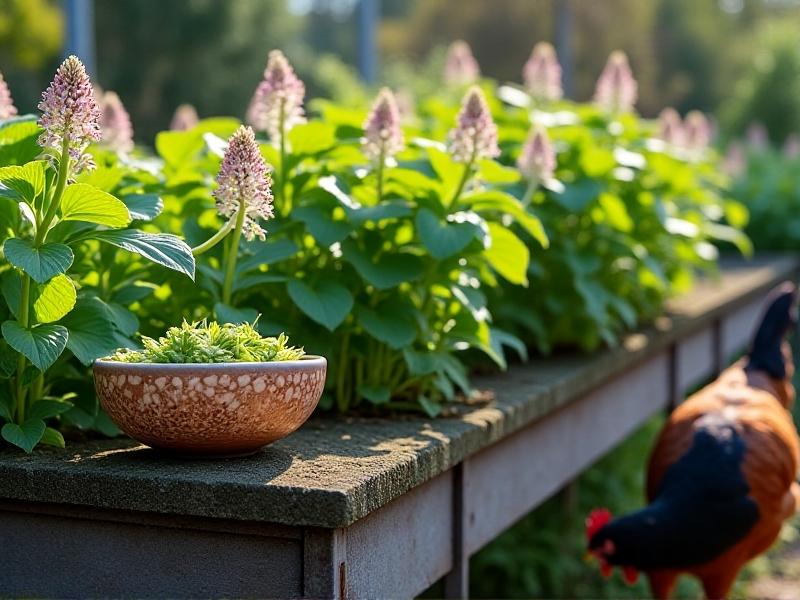
Spoiled feed or erratic eating patterns can disrupt digestion. Raw garlic ( Allium sativum ) boosts gut flora and combats parasites—mince one clove per gallon of drinking water. Fennel seeds ( Foeniculum vulgare ) reduce bloating; add crushed seeds to feed twice weekly. For diarrhea, brew blackberry leaf tea—its tannins firm stools. Always provide grit to help chickens process fibrous herbs.
Parasite Control: Chemical-Free Prevention
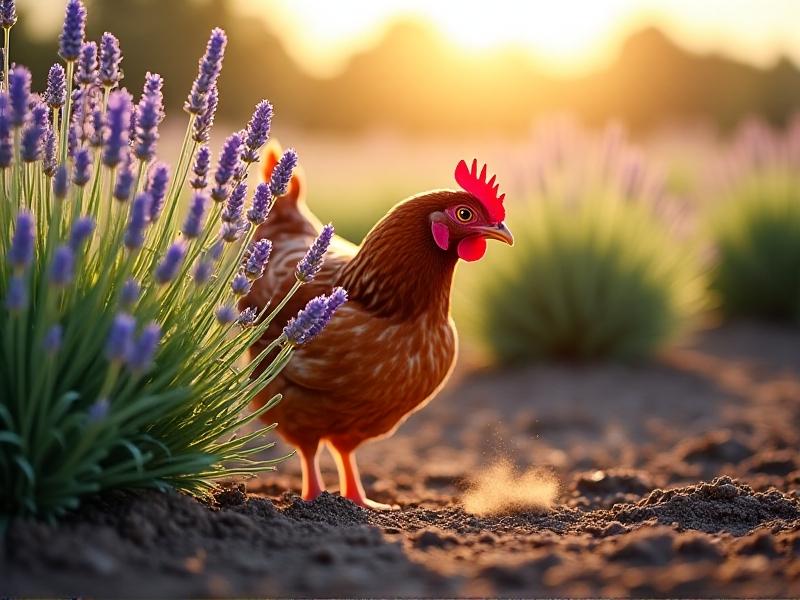
Mites and worms thrive in urban coops. Wormwood ( Artemisia absinthium ) dried leaves deter internal parasites—sprinkle sparingly in feed to avoid bitterness overload. Lavender sachets in nesting boxes repel mites. Diatomaceous earth paired with fresh pumpkin seeds creates a dual defense against worms. Rotate herbs seasonally to prevent parasite resistance.
Stress Reduction: Calming the Flock
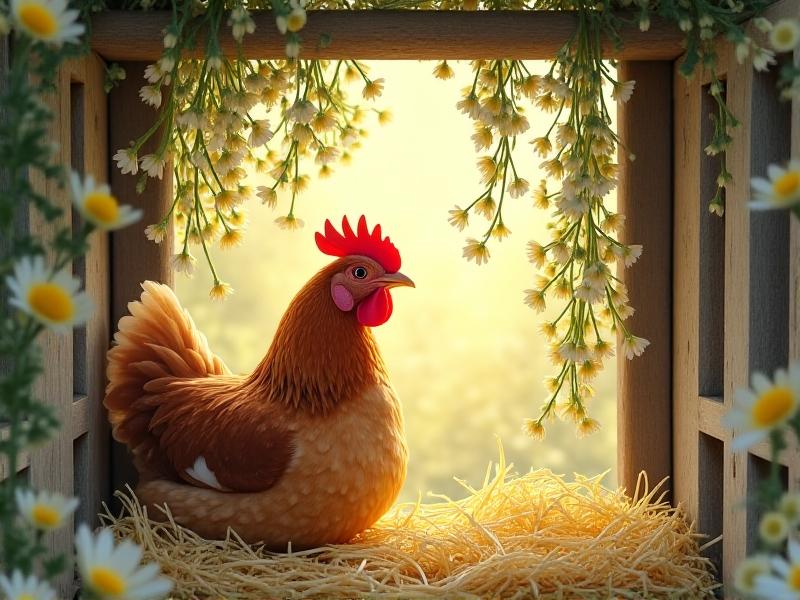
Noise and confinement trigger chronic stress. Lemon balm ( Melissa officinalis ) tea in waterers reduces anxiety—infuse 10 leaves per quart overnight. Chamomile ( Matricaria chamomilla ) blossoms scattered in dust baths promote relaxation. Create shaded herb zones with catnip ( Nepeta cataria ), which contains nepetalactone, a mild sedative safe for poultry.
Egg-Laying Support: Nutrient-Rich Botanicals
Calcium deficiency and hormonal imbalances affect urban layers. Nettle ( Urtica dioica ) provides iron and calcium—steep dried leaves for a nutrient-rich tea. Calendula ( Calendula officinalis ) petals boost yolk color and regulate reproductive cycles. Ferment feed with chopped dandelion greens to enhance vitamin absorption. Always provide oyster shell supplements alongside herbs.
Skin and Feather Care: Herbal Topicals
Pecking injuries and mites damage skin and plumage. Aloe vera gel cools burns and bites—apply directly to wounds. Plantain ( Plantago major ) poultices draw out infection; mash fresh leaves with honey. For feather regrowth, add flaxseed or chia to feed for omega-3s. Avoid essential oils—opt for herbal-infused coconut oil instead.
Immunity Boosters: Year-Round Defense
Urban pathogens require robust immune support. Echinacea ( Echinacea purpurea ) tincture in water during molt season enhances white blood cell production. Turmeric paste (mixed with black pepper for absorption) reduces inflammation—add a teaspoon to feed daily. Astragalus root powder strengthens resistance to respiratory viruses. Rotate herbs quarterly to maintain effectiveness.
Crafting a Balanced Herbal Regimen
Start with one remedy at a time to monitor responses. Dry summer herbs for winter use, and freeze fresh pesto-like herb blends for waterers. Partner with an avian vet to diagnose severe cases, using herbs as complements, not substitutes. Observe flock preferences—chickens often self-select beneficial plants when given access.



